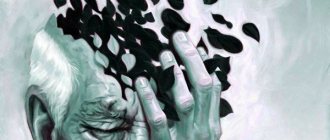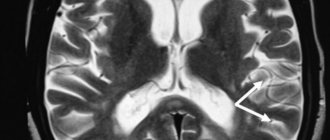Slava Profina 06/20/2018 no comments
0
The number 13 is mystical, and for some, truly scary. Many coincidences with this number are so striking that common sense refuses to call them mere coincidences. Because of this, people develop a special relationship with the number 13. And for some, it develops into a real obsessive fear - triskaidekaphobia. If you do not pay attention to the development of the disorder in time, this can have very serious negative consequences for the patient.
Scientific name of phobia
Triskaidekaphobia from the ancient Greek words τρεισκαίδεκα - thirteen and φόβος - fear, means a painful dislike of the number 13. There is also a synonym terdekaphobia. Oddly enough, it was this superstitious fear that took shape into a phobia with a separate name, although there are many more fears, equally irrational, passed on from generation to generation. Unfortunately, our society, for the most part, is not accustomed to think critically, and therefore the number of prejudices is enormous.
It is worth noting that in rare cases, highly educated, intelligent people also suffer from triskaidekaphobia. The explanation here may be as follows: internal contradictions tear a person apart, but have no way out. He is constantly in an anxious state, and this is extremely draining on the psyche. To save herself, she unconsciously “chooses” a way to control her condition, for example, by avoiding the number 13. They offered a ticket for the 13th seat on the train, but the person refused and asked for 14 - and that’s it, now he is calm. The meeting was supposed to be on the 13th, but he rescheduled it and now thinks that the result will be better, the anxiety has decreased.
Impact on naming of the Shuttle US program
- The disaster that occurred on Apollo 13 may have been a factor that led to the renaming, which prevented the plan to be called STS-13.
- STS-41-G was dubbed the thirteenth flight of the Space Shuttle. However, STS-41-C was originally an STS-13 mission. STS-41-C was the eleventh orbital flight of the space shuttle program.
After STS-9, the Space Shuttle numbering system was replaced with a new one. It started with STS-41B, the previous one was STS-9. The new scheme had the first number for the American fiscal year, the next one was considered the launch site (1 or 2), and then the mission number numbered with a letter for that period. In the case of the actual 13th flight, the crew apparently were not superstitious and made a humorous mission patch that featured a black cat. Plus, they landed on Friday the 13th, which one of the crew called "pretty cool." Due to the way the launch designations and manifest work, the mission numbered STS-13 may not have launched at the 13th location as propagated by the shuttle program. In fact, he ended up 11th. One reason for this was that the launch had to be cleaned, which delayed its mission.
NASA reported in a news article in 2021 that this is due to a much higher frequency of planned launches (pre-Challenger disaster). As it happened, the Shuttle program did experience an accident on its one hundred and thirteenth mission, leading up to the launch date of STS-107.
The actual STS-113 mission was a success and was launched earlier due to the nature of the launch manifest.
At first glance, it may seem surprising that an agency that should be focused on science and technology would place such emphasis on an ancient superstition... but, firstly, the ill-fated voyage of Apollo 13.
— Tragedy and Triumph in Orbit: The 80s and Early 90s by Ben Evans.
Manifestations
Fear of the number 13 manifests itself as irrational avoidance. In extreme cases, if it cannot be avoided, a terdekaphobe may feel physical discomfort, even nausea, due to increased anxiety. This phobia is especially widespread in the West, in America and Germany. But it is worth noting that excessive concern for people who actually suffer from phobias (there are not very many of them) contributes to the emergence of unnecessary prejudices among others.
In the States, many hotel-type establishments prefer not to number 13 floors and rooms. To do this, use the designation 12A, or behind the 12th button in the elevator, the next one is the 14th. Naturally, this forms certain stereotypes in children, which can develop into superstitions and, to an extreme extent, into a phobia of the number 13.
Well-known triskaidekaphobes, for example, Angel Nieto (Spanish motorcycle racer, 13-time world champion) preferred to say that he had 12+1 victories in world championships, and Arnold Schoenberg (Austrian composer) made a deliberate mistake in the title of his last opera, just for the number the letters did not equal thirteen.
As for Schoenberg, his life was simply a classic example. He was born on September 13, was madly afraid of his 76th birthday because the sum of the numbers is 13, and died on July 13, exactly when he was 76. According to legend, he had a premonition of death all day and died 13 minutes before the 14th. . What is this, no matter how mystical! If you think a little, it is not difficult to understand that there was probably more than one Schoenberg who was born and died on the 13th of the month at the age of 76. However, the composer's prejudice regarding the number 13 helped to form a legend that sinks into the soul of every suspicious person.
Fridays have been considered an unlucky day for centuries.
These days we think of Fridays as lucky days as they mark the end of the work week. However, throughout history, Fridays have been considered bad and unlucky.
It's cool to be a part of Suntory Sungoliath. The new Sungoliath season starts on January 16th
I didn’t find myself in life. Why does Igor Nikolaev support his 42-year-old daughter?
Rosemary, lemon, vitamin E. I make homemade shampoo for hair loss
Geoffrey Chaucer's 14th-century collection of stories known as The Canterbury Tales was one of the first texts to mention Friday as a day of bad luck: "And on Friday fell all this misfortune."
Beginning in the early 1800s, Fridays eventually became better known as a day when people didn't want to do normal things, much less start something new, like moving, getting married, or starting a new business.
Causes
Triskaidekaphobia is a religious prejudice, however, the reasons for its occurrence have not yet been clearly elucidated. Most often among the versions, a biblical story is recalled that describes the last meal of Jesus Christ - the Last Supper, at which Judas Iscariot, who later betrayed the teacher, sat thirteenth at the table.
In the 19th century in Europe there was a belief that if 13 people gathered at the dinner table, one of them would die within a year. After this, a tradition arose that involved inviting an additional fourteenth guest or even seating a mannequin at the table.
In addition, some argue that the fear of the number 13 is provoked only by the fact that the number is greater than 12, which is sacred to many religions. Hence the name “devil’s dozen”, which has a negative connotation. If we rely on Christianity, then there is a belief that the thirteenth angel is Lucifer. Norse mythology also gives some explanations for why the number 13 is "bad" - the thirteenth god in the pantheon was Loki, personifying deceit and cunning. In the realm of the occult, the symbolism of the number is also confirmed - the 13th Tarot card depicts “death”.
How to overcome your fear of the number 13
Despite the fact that the fear of the number 13 is called triskaidekaphobia, you need to start fighting it as with ordinary superstitions. And for this you need to develop, read books, travel, communicate with people who are smarter than you. The development of critical thinking comes with experience, knowledge, understanding and acceptance of pluralism.
If you want to get rid of your phobia of the number 13 and started by reading this article, then you are on the right track. Find out the maximum amount of information about your fear, understand the origins of the formation of prejudice. It often turns out that a person is susceptible to it simply because he is used to it. He had never thought about or explained to himself the reason in his life. By thinking that there is no reasonable evidence, you change your attitudes and gradually get rid of obsessive fear. Regulating your thinking is in your hands.
It is also important to understand that a Tricksydecaphobe sets himself up for negativity as soon as he encounters the number 13. He will definitely associate all his troubles on the 13th day of the month with the date, although he may not even attach any significance to troubles that happened on other days. The brain, alarmed by the painful anticipation of problems, will isolate even small negative events from the environment and skip the positive ones.
Psychologists recommend trying to consciously choose the number 13 in life for some time and monitoring what is happening. Stop reading at chapter 13, add 13 songs to the playlist, meet your neighbors from the 13th floor and go visit them. If you evaluate the events impartially, you will notice that no special troubles are happening to you in connection with this.
A frequent accompaniment of superstitions are rituals that seem to “cancel” the action of omens. If you know that you also have any rituals with your fear of 13, then it is worth considering whether this is a sign of obsessive-compulsive disorder.
By and large, triskaidekaphobia rarely causes serious trouble for a person. Well, he won’t buy the 13th apartment, in the 13th building, on the 13th floor, if it makes him feel better. All these are not such oppressive prejudices. However, we mentioned at the beginning of the article that a pronounced fear of numbers, constantly seeing them everywhere: price tags, car license plates, house signs is a sign of neurosis. In this case, it is recommended to visit a psychologist to identify your internal problems and then get rid of them.
Origin
Judas theory
Since the 1890s, a number of English language sources have related thirteen to the idea that at the Last Supper, Judas, the disciple who betrayed Jesus, sat 13th. The Bible says nothing about the order in which the Apostles sat, but there were thirteen people at the table. Additionally, the number 13 is unevenly bad in the Judeo-Christian tradition. By the way, the characteristics of God (also called the Thirteen Attributes of Mercy) are listed in the Torah (Exodus 34:6–7).
Hammurabi theory
There is a myth that the earliest reference to the unlucky or evil number 13 is in the Babylonian Code of Hammurabi (circa 1780 BC), where the thirteenth law is considered omitted. In fact, the original manuscript is not numbered. Translated by L. W. King (1910), edited by Richard Hooker, one article is also omitted.
If the seller went to another world (that is, died), the buyer must recover damages in this case five times from the seller’s property.
Other translations of the Code of Hammurabi, such as those by Robert Francis Harper, include the 13th article.
Other number phobias
Among other well-known fears of numerals, it is worth recalling hexakosiohexekontahexaphobia. This amazing word means fear of the number 666, also called the number of the beast. Just like the fear of 13, it is a religious prejudice characteristic of people who consider themselves Christians. In China, on the contrary, six is a “lucky” number, therefore three sixes do not frighten representatives of Eastern cultures at all. In Russia, there are known cases when, due to superstition among the masses, transport routes with the numbers 666 were canceled. In the occult environment, the number is actively used along with other satanic paraphernalia.
Tetraphobia is the fear of the number 4. This superstition, unlike those described above, is widespread in East Asia, and is practically absent in the West. The answer here is very simple - fear is associated with the similarity of the pronunciation of the Chinese character meaning four and death. Everything we said about the number 13 in the West (not using the 13th floor in hotels to accommodate guests, avoiding numbering on houses, etc.) is present in Eastern countries in relation to the number 4.
There is also the concept of arrhythmophobia, which means an anxious attitude towards any individually significant number.
Events associated with failure
Apollo 13 was launched on April 11, 1970 at 13:13:00 CST and on the 13th at 21:07:53 CST an oxygen tank exploded. He returned safely to Earth on the 17th of that month.
Costa Concordia The disaster occurred on Friday, January 13, 2012, with the loss of 33 lives.
In November 2015, a terrorist attack took place in Paris, it was Friday the 13th.
On October 13, 1307, the arrest of the Knights Templar was ordered by Philip IV of France. While the number 13 was considered unlucky, Friday the 13th was not considered unlucky at the time. The idea that their arrest was related to a phobia is incorrect. On the thirteenth of the 5th day of the week at the beginning of the 21st century, the novel “The Da Vinci Code” was released and popularized.
In 1881, an influential group of New Yorkers led by American Civil War veteran Captain William Fowler came together to put an end to this and other superstitions. They formed a cabaret dinner establishment called the Thirteenth Club. At the first meeting, on Friday, January 13, 1881, at 8:13 p.m., 13 people sat down to dinner in a room with 13 seats. The guests walked under the stairs to enter and sat among a pile of scattered salt. Over the next 40 years, many thirteen clubs emerged. Their activities were regularly reported in leading newspapers, and the number included five future US presidents, from Chester A. Arthur to Theodore Roosevelt. Thirteen clubs had various imitators, but all of them gradually faded from interest.
Vehicle registration plates in the Republic of Ireland are such that the first two digits represent the year the vehicle was registered (i.e. 11 is a 2011 registered car, 12-2012, etc.). In 2012, it was suggested among members of the Society of the Irish Transport Industry (SIMI) that the prospect of having "13" registered cars could discourage motorists from buying new ones due to superstitions surrounding the number thirteen, and sales of the industry (which had been already weak). The government, in consultation with SIMI, introduced a system where vehicles registered in 2013 had the age mark identification line of their registration plate read "131" for vehicles registered in the first six months of 2013 and "132" for those issued in the last 6.
conclusions
Fear of the number 13 is irrational and unfounded, having its origins in religion and mythology. Like all superstitions, it arises from a lack of critical perception of information, however, it can also be a symptom of some psychological or even mental disorder. But most often the reason is that people tend to accept a variety of statements on faith without doubt. I would like to remember the above-mentioned Arnold Schoenberg - just think how many 13ths he lived through before he died on one of them!
Who can get paraskavedekatriaphobia and how to cure it
Of course, not everyone succumbs to mass hysteria. Typically, this phobia is characteristic of hyper-emotional, anxious and depressed people who believe in all sorts of signs and superstitions.
Read more about the attitude towards Friday the 13th in modern society in the video.
Among the reasons for the emergence of such fears, psychotherapists name:
- An unhealthy lifestyle - alcoholism, smoking, drug addiction - weakens a person’s nervous system, making him more anxious and less resistant to stress.
- The presence of diseases in a person that contribute to exhaustion and disruption of the nervous system.
- Personal character, especially excessive suspiciousness and anxiety learned from childhood.
- All kinds of phobias can cover up a much more serious mental illness of a person, for example, neurosis or schizophrenia.
Fortunately, paraskevedekatriaphobia can be successfully treated. Therapy will include taking sedatives and a mandatory course of sessions with a psychologist.
Cognitive behavioral therapy, hypnotic influence, and neurolinguistic programming are effective and have proven themselves in the treatment of all kinds of fears.
Note! Like any fear, the fear of Friday the 13th can either decrease and even completely disappear in a person’s mind, or grow to enormous proportions. It all depends on him: fight for his calm, look for ways to overcome mental discomfort, or succumb to weakness, indulging in hysteria and feeding more and more anxiety within himself.
With proper work on oneself under the guidance of a qualified doctor, a person quickly frees himself from a phobia and lives a full and joyful life without obsessive irrational fear.











